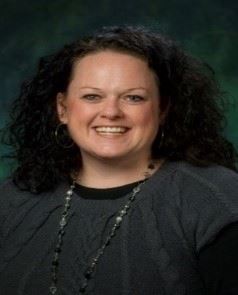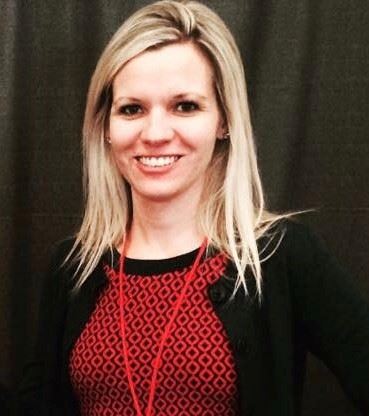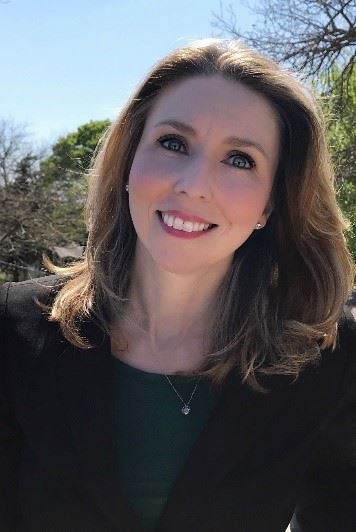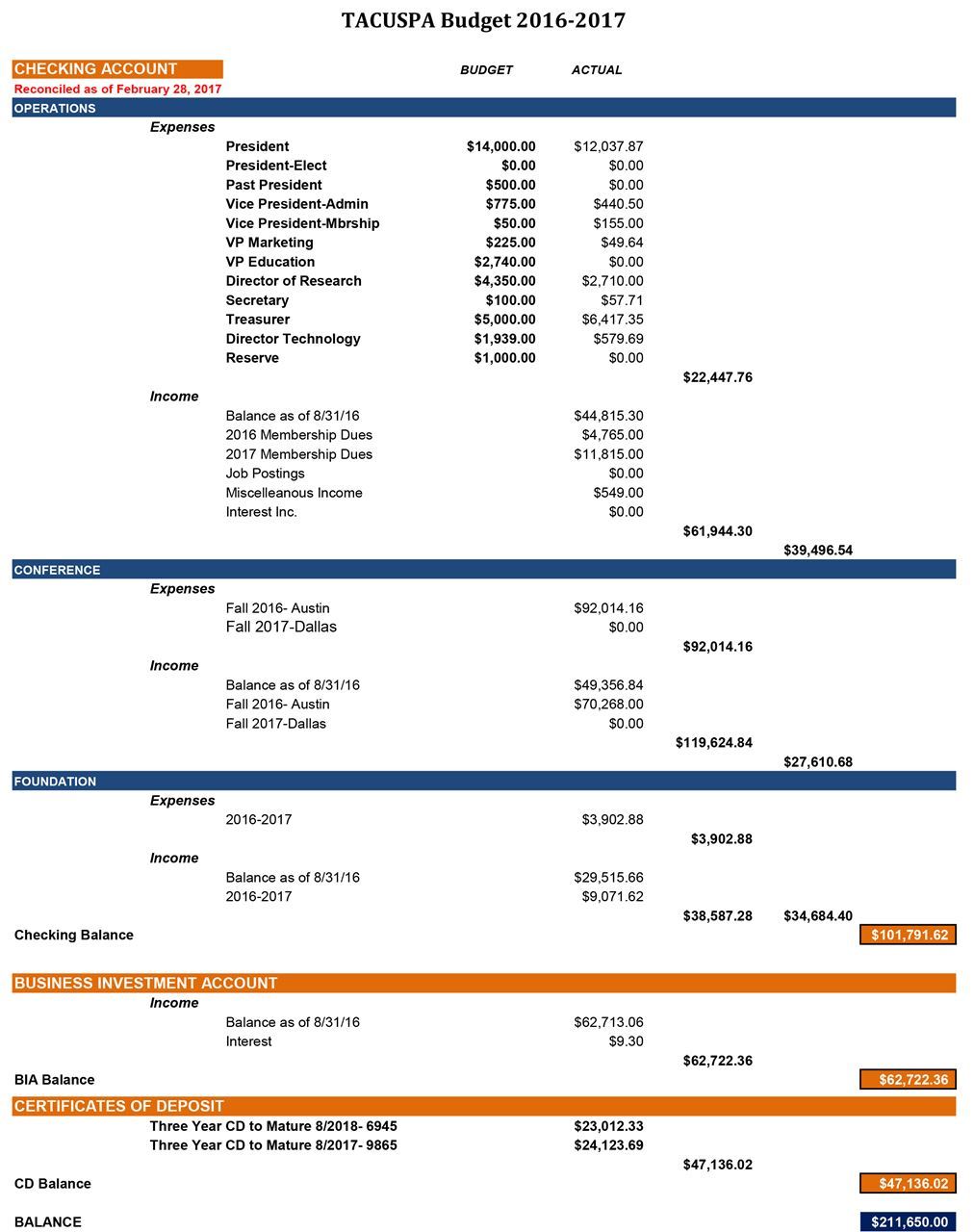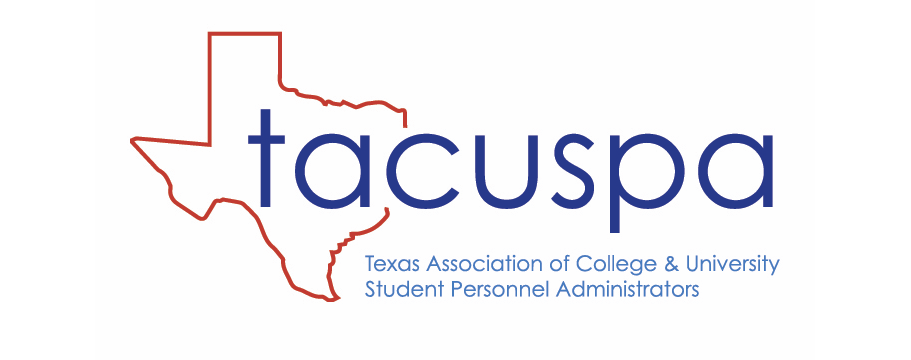
 |
SPRING 2017 |
|
In this issue... |

TACUSPA Colleagues, Not only does spring bring us April showers and May flowers, but every two years it brings us a new legislative session. If you haven’t noticed, the 85th legislative session is in full bloom. There seems to be no shortage of bills that could affect higher education. I have learned over the years how important it is to pay attention during the legislative session since the outcome almost always impacts our work in Student Affairs. Some of the bills to watch include: SB 6 known as the “bathroom bill," HB 355, which would prohibit sex offenders from living on campus, CSSB 576 & HB 1096, which are related to sexual harassment & assault, dating violence and stalking, and HB 2355, which involves assistance for students who may be homeless. This is just a sample. There are many other proposed bills and you can track their progress at http://www.capitol.state.tx.us/. Just this week I attended the UNT Higher Education Law Conference, which partners with TACSUPA. Presentations focused on Title IX, Free Speech, Campus Safety, Clery Act, Drones on Campus, and Student Debt. One of the things I enjoy about this conference it that it reminds me how instrumental it is and how it can create many challenges. They also give Student Affairs the opportunity to play a major role in program and policy development. Spring also represents the season for TACUSPA elections. I would like to thank all the candidates for choosing to take a leadership role in our organization. We have a full slate of qualified professionals willing to step up and bring fresh and new ideas to our organization. When the time comes, April 10-19, please take the time to read the candidate bios and statements and cast your vote! Finally, registration for the fall 2017 conference will open in June. The conference committee is in full swing and planning a great conference for our members. Big things happen in “BIG D” so we hope to see you there October 1-3, 2017. Lisa Nagy TACUSPA President Save the Date for the 2017 TACUSPA Conference in Dallas!
Have you made the pledge? We challenge you to pay it forward and pledge to give at least $1000 between now and TACUSPA’s 100th Anniversary Celebration in 2025. TACUSPA has contributed to the profession and to professionals engaged in Student Affairs work since 1925. All proceeds from this campaign will be used to provide scholarship and fellowship opportunities for graduate students and new professionals in the field of Student Affairs. There are a variety of flexible payment plans to fit your needs. You may decide to give $111 a year over the next nine years or start with a smaller amount and increase it over time. Pick the plan that works best for you. Participants making the pledge will be recognized on the newsletter and on the wall of honor at annual conferences in October of each year. Upon completion of a $1000 total gift, donors will be recognized as members of the Century Club. To make a pledge Fill out a Century Pledge Campaign form and email to Amanda.Drum@tamucc.edu. To donate, go to http://www.tacuspa.net/Foundation. 2016 Century Club Members John Kaulfus 2016 Century Pledge members Ahmet Aksoy Where are they now? Past TACUSPA Fellows Christina Wan What were you doing in higher education when you received the fellowship? At the time she received the fellowship, she was serving as a Hall Director at Texas A&M University – Commerce. This was her first professional position after graduate school. What are you doing now in higher education? She currently serves at Georgia State University’s Atlanta campus as the Senior Student Development Specialist for Advocacy and Student Success in the Multicultural Center. Through this role, she is able to provide support to students in efforts to build community and establish a place on campus. Additionally, she has the opportunity to advise several diversity-related student organizations. Go Panthers! How did the fellowship benefit you? The fellowship provided her the opportunity to attend a TACUSPA conference allowing her to learn more about the role of TACUSPA in Texas and the many benefits of membership and involvement. The opportunity also provided a chance for her to build a network in Texas and within the profession. She is still very connected to the professionals she met during her year as a TACUSPA fellow. This experience helped her appreciate the value of professional association involvement. Although she no longer resides in Texas, she remains involved in other professional organizations because of her experience in TACUSPA! “I am very grateful for the opportunity to have been selected as TACUSPA Fellow, and for the support of my former institution, Texas A&M University-Commerce, for the ability to attend TACUSPA conferences and participate professionally. I have grown so much from the opportunity!”
Pamelyn Klepal Shefman serves as the Director of Assessment and Planning for the Division of Student Affairs and Enrollment Services at the University of Houston and has served in this position since 2013. She became a member of TACUSPA in 2012 while was a doctoral student and has not looked back since. Currently Pam serves the association as the Director for Assessment and the Assessment and Evaluation Community of Practice Chair. She is the proud co-parent to two wonderful children Quinn (9) and Brock (7); and a rescue dog named Sandy. “In 2012, I was lucky to receive a graduate student scholarship from TACUSPA. Since then, I continue to recognize the value of the awards and recognition that TACUSPA provides as a way to bring us all closer. Texas is a large state and it sometimes difficult to find your home yet TACUSPA works hard to make that home for all professionals and graduate students. Each and every year TACUSPA provides more and more to me professionally and I am glad that I can serve on the board as a way to pay it forward for others.”
For this newsletter, we found a best practice from University of Texas at Arlington that we hope you will find interesting and inspiring for the work on your campus. If you have something to share please feel free to email pshefman@central.uh.edu to be featured in a future assessment corner. Assessing the Impact of Involvement and Engagement Molly Albart As student affairs professionals we are often asked how our work with students positively impacts student success. Although assessment practices have greatly improved in recent years, it can still be difficult to demonstrate this impact outside of student satisfaction surveys and learning outcomes assessment that is specific to one program or event. At UT Arlington, we have been tracking students who are highly involved and engaged in an effort to compare retention and graduation rates to those not involved and to university averages. Utilizing our PeopleSoft system we’ve been able to load historical involvement records for students as well as continuing to track students each semester. At this time we have more than 10 years of data for a majority of our departmental programs. The data continues to be an extremely useful resource and allows us the opportunity to be part of important discussions on campus related to student success. The initiative required collaboration between those responsible for PeopleSoft and Data Analytics staff as well as the Division of Student Affairs Assessment Team. Once the Division identified which groups and programs within the Division qualified as “Highly Involved and Engaged” we were able to begin loading the extracurricular record into PeopleSoft. This initial planning and preparation took a year or so to complete. But the work didn’t end there. University Analytics staff had to assist in building reports that could provide demographic data, retention data, and graduation rates for these students. Each semester departments are required to submit lists of students in the highly involved and engaged groups to be loaded into PeopleSoft. Reports have recently been rebuilt by University Analytics and at the quick click of a button we can see retention and graduation reports for any of the groups we track as well as an aggregate report for all students. The data we’ve collected has shown us that for first-time full-time students between 2010 and 2015, those who have at least one extracurricular activity participation record are retained at an average of 10 percentage points higher than students who do not have an extracurricular activity record. In addition, for students who started as first-time full-time freshmen in 2012, the four-year graduation rate of those with an extracurricular data record is 8% higher than those without an extracurricular data record. For the fall 2011 cohort, that difference was 17.25% and 19.48% for the 2010 cohort. This data allows the Division to be an integral part of our campus’s discussions around student success and why the experiences students have in our programs matter to the broader campus community. I would be happy to share more details about this initiative if you’re interested. You can reach me by email at molly@uta.edu. Cultivating the Relationship: Deferred Adjudication for Students Wednesday, April 26, 12:00-1:00pm CST Sarah Jaks, Assistant Director, Texas A&M University This session will take a look at the Noise Abatement Class (NAC) offered at Texas A&M through Off-Campus Student Services. While NAC provides students with deferred disposition status for their penal code conviction, it also provides education on what it means to be a good neighbor and how to live the life of a college student while respecting the lives of others. This session will dive into the history of how the class was developed, share curriculum, and discuss the importance of such resources while providing key aspects that you can bring back to your home institution. Register for Cultivating the Relationship: Deferred Adjudication for Students Wednesday, May 3, 2017, 12:00-1:00pm: Putting Together our Identities: Navigating Intersectionality at a PWI Dr. Uyen Tran-Parsons, Senior Lecturer, University of North Texas In 1991, Crenshaw introduced the concept of intersectionality providing scholars a tool to identify and respond to nuanced and varied dimensions of privilege and oppression. Recent events such as Beyonce’s Formation Super Bowl performance reintroduced the concept into the mainstream consciousness. Individuals do not simply experience the world from one identity. The intersection of multiple identities creates a unique experience with racism, privilege, sexism, and classism. Applying this same concept to academia, are we truly allowed to come to the table with all our unique identities? In this session, doctoral students discuss how they navigate intersectionality specifically at a PWI. For a complete list of our Webinar Series and registration please visit http://www.tacuspa.net/webinars Article - DACAmented Students in Higher Education By Inmer Cardona Introduction As the DACAmented student population is growing in the United States, their level of education attained is important and has become one of the central topics of discussion in higher education. Hoyt (2014) defines DACAmented students as “a subgroup of a larger group defined as undocumented students or, sometimes referred to as “Dreamers” (derived from the DREAM Act)” (“Am I a DACA Student?,” Para. 1). Since the announcement of the DACA (Deferred Action for Childhood Arrivals) program by President Obama in June 15, 2012, more undocumented students have been given the opportunity of pursuing higher education. The DACA program has also provided several benefits for DACAmented students to work legally and as well as obtaining a driver’s license. Additionally, DACA helps to reduce the financial burdens for students (Romo & Mogollon-Lopez, 2016). Despite these unique opportunities and the access to higher education, DACAmented students face the obstacle of being marginalized within institutions of higher education. Statement of the Problem DACA has become more prevalent due to the current political climate and the constant media attention. The media hype has caused many DACAmented students to be afraid that they may lose the opportunity to obtain an education or even to be deported (Dreby, 2015). Many environmental and individual factors prohibit the success of DACAmented students. Funding, culture, expectations, sense of belonging, and limited information on how to navigate the college system hinder students from graduating (Bohon, Johnson & Gormon, 2006; Nunez, 2009; Rivera, 2014). These factors are essential in the academic success of any student and can have far reaching implications if one does not have that access. Many institutional agents are not aware of the needs of DACAmented students and are unable to direct them to the right resources. Also, faculty and staff may not be aware of “policies and regulations regarding the rights now afforded to this population of students” (Romo & Mogollon-Lopez, 2016, p. 150). Addressing the problem Rendón’s (1994) theory of validation serves as a great tool to examine the validating experiences of underrepresented students such as DACAmented students at an institution. The first element of Rendón’s theory to ensure validation is that “institutional agents such as faculty and counselors” (Rendón, 2002, p. 644) take responsibility in initiating contact with their students and provide them with the appropriate services. DACAmented students would benefit from having staff and faculty who actively engage them and offer assistance. It would help students who are hesitant to ask for help to seek it. The second element of Rendón’s validation theory is that when validation is present, the student is more prone gain a sense of belonging. Creating a welcoming environment will validate students. Greeting students as they walk-in and asking them how their day is going, is a great start. Having designated advisors who specifically work with undocumented and DACAmented students at an institution could provide the validation needed for this student population to be succesful. The third element is that validation can help with student development and lead to student involvement at an institution. Having faculty and staff work with DACAmented students will help set the foundation for their involvement on and off campus. As Astin’s (1984) student involvement theory states, a student is more likely to persist and graduate at an institution if they are involved with some sort of school activity or group. The fourth element of Rendón’s theory of validation is that it can occur in and outside of the classroom, and from all sources, even other students. This fourth element is very important to highlight as this can either have a positive or negative impact on a student’s learning. Institutions must be able to adapt to its changing student demographic and support marginalized student groups such as DACAmented students. Once a student feels neglected they are more likely to leave the institution. The fifth element is that validation is not the end result in helping students succeed at an institution. More work is needed to help students obtain their degrees. The sixth and final element of this theory is that students should experience validation at an early stage in their academic career. DACAmented students must feel this sense of validation at orientation and throughout their collegiate years. DACAmented students should not be experiencing validation right after they have gone through registration and attending their first few classes; at this point it will be too late for validation. As mentioned in the fourth element students are experiencing validating experiences from several factors. Potential implications DACAmented students are marginalized by their status and identity in the United States. It is important for institutions to understand the microaggressions that impact DACAmented student’s identity. Solórzano, Ceja, & Yosso (2000) defined microaggressions as “subtle insults (verbal, nonverbal, and/or visual) directed toward people of color, often automatically or unconsciously”. Institutions must make it an effort to increase their knowledge that microaggressions exist and find ways to alleviate them. This knowledge better equips institutional agents to alleviate the neglect students may encounter inside or outside of the institution. Conclusion DACA is an essential program for many undocumented students because it lessens daily fears, lowers stress, improves self-image, and hope for the future. (Romo & Mogollon-Lopez, 2016). The DACAmented student population needs to be better served despite federal and institutional policy changes. College personnel must be able to adapt with these changes and continue to educate themselves to provide validation to all students who are marginalized. References Astin, A.W. (1984). Student involvement: A developmental theory for higher education. Journal of College Student Personnel, 25, 297-308. Membership Expiration All TACUSPA memberships will expire on December 31, 2016. New memberships or renewals received after November 1, 2016, will count towards 2017 membership unless the membership was unpaid for 2016. Memberships must be renewed by April 1 in order to vote. Members planning to run for an elected office on the Board of Directors must renew their membership prior to being confirmed as a candidate. Renewing Memberships Individual members can renew online at http://www.tacuspa.net/Memberships. Reminder: student members cannot be full time employees at a college or university AND they must be full time students. Verification of full time student status may be requested from a student member. Important Note for those with institutional membership: Most
of our members join through the Institutional Membership process. If
you are included in this group, please do not renew your membership on
your own without first speaking to your department head, dean, or
vice-president. Institutional members will follow the instructions on
outlined on the Institutional Membership webpage. New addition to Institutional Memberships! The Board of Directors is excited to announce that Institutional Members may now include a FREE faculty member on their roster! The membership must be assigned to a faculty teaching in a higher education, student affairs, or similar program. The Board hopes that adding this position will encourage more participation in the Association from faculty who are dedicated to our current and future colleagues. The faculty membership will be indicated on the institutional roster, which is available on the institutional memberships webpage. Membership Questions? Director of Membership, Stephanie Box: stephanie.box@tamucc.edu or 361.825.6290 | TACUSPA Election - Candidates and Statements Candidate Profiles for the 2017 TACUSPA Elections Below are the candidates in the running for the 2017 TACUSPA officer elections. For each candidate you will find his/her title, university/college, and statement of candidacy. Biographical information can be found on the TACUSPA website at http://www.tacuspa.net/election. Ballots and voting information will be sent to all members on Monday, April 10, 2017. Please remember to renew your membership so that you may participate in the elections. President Mark Munguia Hello fellow TACUSPA Members. It is with great confidence and enthusiasm that I humbly come before you to ask for your support in serving you as your next TACUSPA President. I believe that my leadership experiences inside and outside the association have sufficiently prepared me to take on this challenging role. In joining TACUSPA, I quickly found a group of talented and passionate educators who have helped me build a broader scope of knowledge and network within Student Affairs. My membership in TACUSPA has given me the opportunity to attract more professionals to the association in order to engage them in broader conversations about how we can best serve our students. As I attended sessions and spoke with colleagues, I found that if you stripped away the titles and functional areas, the challenges we all face are very closely connected and at times interwoven. I witnessed the passion and dedication for the development and success of students, along with the commitment to learn from each other. I saw the opportunity to get involved at the ground level and quickly make a difference. TACUSPA became my choice, my place and my family. As your next President, I promise to speak respectfully of the past, realistically about the present and optimistically about the future. I will ensure that all conversations and decisions hold true to our core values, while continuing to execute the association’s current strategic plan and beginning conversations on what we want TACUSPA to “BE” when we hit our 100th anniversary in 2025. The dreamer in me sees a vibrant knowledge community, a trend setter and a model for other state associations. I see over 1000 members, multiple professional association partnerships, a healthy and sustainable corporate sponsorship revenue stream, an even stronger donor base, an increased online learning presence, long standing conference sponsors, over 400 conference attendees and perhaps even a permanent professional position to mitigate the increased operational workloads created by growth. My position as Treasurer for three years allowed me to gain a unique fiscal and executive view of the entire association, its operational capacities and its investments. In order for the association to keep up with increased operational costs of doing business, the increased cost of conference venues, adequately funding strategic efforts and the need to continually enhance professional development, research and technology, we must investigate and implement strategies to generate additional income. This will allow us to continue to thrive and push our efforts further towards our vision. In order to continue to diversify and increase TACUSPA’s membership, we must remain competitive, attractive, needed and relevant. Each year, there are a multitude of professional development opportunities and associations looking to recruit members from Texas, thus we must win the differentiators of quality, price, value, convenience and reputation. We must look to recruit and retain new members from non-traditional functional areas and underrepresented populations. We must identify, market and consistently tell our story to institutions and individuals that are not current members, all while continuing to add value to those that are. It would be a privilege to serve you as your next President. No matter the outcome, I promise to continue working with each of you to make TACUSPA your choice, your place and your family. Molly Albart I am honored to be nominated to serve as the President-Elect on the TACUSPA Board of Directors. I have enjoyed my work with TACUSPA and look forward to the opportunity to continue serving an organization that that is passionate about meeting its members’ needs and providing the best possible professional development for student affairs professionals across the state. TACUSPA is a growing and thriving organization that is at the forefront of relevant issues facing higher education. If elected, I would assist in the development of a new strategic plan that will take the organization into the next three to five years. I would encourage the board to think of creative ways to deliver quality educational programs that educate the membership on important issues facing our campuses. I would strive to continue the good work of our past and current presidents in regards to building collaborations with outside organizations to advocate that Student Affairs has a seat at the table for important initiatives at the state level. We will continue to grow our membership and ensure the membership is diverse across institution size, type and location. Most importantly, I would hope to increase involvement across the organization through volunteer opportunities and outreach. I believe I have the skills necessary to serve as President-Elect for TACUSPA. I am committed to TACUSPA’s success and would love to continue my work with this organization that has offered me so many opportunities to learn and grow as a professional. I look forward to the opportunity to serve TACUSPA in this new role. Director of Administration Paul York TACUSPA has served as a great chance to engage in conversation and professional development in my professional life and I am honored to be nominated as a candidate for the Director of Administration position. This position plays a vital role in the effective and efficient operations of our association. As the person who maintains our constitution and by-laws, presents proposed changes, and works to verify the outcome of the transitions of our leadership, amongst other duties, this position requires someone with a keen sense of context. In this role I will seek to work closely with the other officers and members to ensure our association’s transition, recognition opportunities, and operations are closely aligned with the values we hold dear. TACUSPA does incredible work for student affairs professionals in Texas, and it has done so by staying steadfast to its values of professional networking, professional development, and professional advocacy. As also a current member of ASCA Texas, I can utilize this position to support the connections between the two associations while ensuring our operations and relationships support our advancement of the 2015-2020 strategic plan. In closing, as a person with a fascination for tradition, history, and context, I will bring innate strengths to this position to serve the association and its members. For me, being the Director for Administration provides me with an opportunity to serve those who have given me so much. Stephanie Box TACUSPA has been my primary professional association for the last 17 years. Serving as the TACUSPA Director of Membership has been extremely rewarding and I am looking forward to the opportunity of serving as the Director of Administration. A primary role of the Director of Administration is to be the ‘keeper of the rules’ for the Association and I am well versed in the TACUSPA Operations Manual, Constitution, and By-Laws. During my terms, I have worked with the current and previous Directors of Administration to update the Association’s governing documents to ensure they are current and in congruence with actual operations, as well as seeing that Board decisions were reflected in the operations manual. I’m a stickler for ensuring that written policies, procedures, and other documents are in-line with operations and I look forward to continuing this important task. Recognizing the outstanding work of our colleagues is vital and I will work diligently to ensure that the awards nomination and selection process is implemented efficiently and effectively. I accepted the nomination for Director of Administration because I have the knowledge, skills, and experience to continue guiding the Association through this time of immense growth. My desire is to have an Association that enriches the experiences of all its members through quality professional development opportunities and recognition of outstanding work in the State of Texas. It would be an honor to have you vote for me as the Director of Administration. Maureen McGuinness I am excited for the opportunity to run for the Director of Administration on the TACUSPA Board! TACUSPA has opened doors for many of us in the state and for me personally. I appreciate the professional relationships that I have built from TACUSPA and only hope to develop more in this role. I would be honored to serve on the TACUSPA Board as the Director of Administration. In this role I am excited to coordinate activities regarding the awards and recognition committees and special projects for TACUSPA as well as keep the organization abreast of changes to the constitution and By-Laws. I have served a number of leadership roles throughout my life and can honestly say I have been honored to serve each one of them. Each time I have added to the organization that I am a part of as well as learned a great deal myself to the inner operations of an organization. I am extremely dedicated to the organization and see myself fully invested in TACUSPA while serving on the Board. Mercedes Moreno It is with great passion and enthusiasm that I accept my nomination for Director of Administration. Over the past years I have had the opportunity to observe and collaborate with multiple TACUSPA leaders. After my first TACUSPA conference I knew this is where I was meant to put forth my energy and create a new era of administration initiatives that would best benefit the current and prospective membership. I have handled numerous legislative and operational projects with the organizations I oversee. As Director of Administration I will have attained the experience of coordinating the awards and recognition committee for TACUSPA 2017, ensuring all changes of the bylaws and activities are communicated directly to all membership and help each person grow within TACUSPA. I am dedicated to serving as a servant leader of this organization and help make decisions in the best interest of all TACUSPA members. Director of Membership Hope Garcia TACUSPA is a wonderfully unique professional association because there is a place for every person who works in Student Affairs within the State of Texas, which means that it’s just large enough to network on a wide breadth of scale and just small enough to see familiar faces who know your name and encourage your professional and personal growth. I have had the pleasure of being involved with this organization each year since my first year as a graduate student! This alone is a testament to this organizations unique, strong and caring membership. In the past, I have served as the Newsletter Editor as well as the Director Technology, and it has been several years since I have served in an official role outside of a committee or mentoring role for TACUSPA. I believe this allows healthy variations of leadership to cycle in and out and to constantly grow for the better. “Growth” is something that finds its way onto every goal list from business to politics to enrollment, but in this instance the simply sustaining or numbers or increasing our numbers actually leads to personal and professional growth of the entire membership because TACUSPA is a place where a wealth of knowledge and support is shared. Given our political climate, it is more than ever important to make certain that through our membership, tertiary institutions of varying levels and the many levels of student services within them are represented in this important space. We can be assured that change is headed our way in higher education, but the amount of invaluable information that is housed in each of our roles, departments and institutions is just what a neighboring institution may need to support their students, goals, or institutional livelihood. I would like to work towards not only increasing the number of represented organizations and members from the varying levels of higher education (4-year, 2-year, private, for-profit, professional, residential, etc.) but, along with my colleagues, ensure that the space TACUSPA provides is one that encourages the across-the-table talk and knowledge-sharing that would provide equal benefit to these various institutional types and in turn, a holistic benefit to higher education and the students and communities each of us touch. Andrea Mitchen I have chosen to seek candidacy for the position of Director of Membership because I feel that my experience and enthusiasm for TACUSPA make me an excellent candidate. In my various institutional experiences and roles, what I have gained most from my time in student affairs administration is the need for collaboration. As most of us have experienced, our resources are limited and becoming more and more limited. In a time of limited resources, it is even more critical that we come together and work together for the greater good of our institutions and our state. There is no organization like TACUSPA in our state that has the ability to bring higher education professionals together across multiple disciplines, divisions, and institutions. As the Director of Membership, my plan is to increase the reach of our association and broaden our membership to include institutions that do not typically participate. Although I feel that our association has done an excellent job at increasing in size and attendance at the annual conference through partnerships and collaboration with associations, I feel that we cannot ever get comfortable until we are able to find a way to connect with all types of institution in our state. My experience working at a two-year college gave me insight into the unique challenges of two-year institutions and I think finding ways to be more intentional in engaging two-year colleges is an obvious place to start. In addition, the annual conference may not be feasible for all institutions, but there are other things we could do as an association to engage these institutions and make their membership in the association more valuable. Over my time in various roles dating all the way back to childhood, I have never been afraid to engage people. I enjoy finding a way to connect myself and others and in student affairs I am lucky to do that every day for the betterment of the student (and parent and family) experience. As George Bernard Shaw wrote, “I am proud of the opinion that my life belongs to the whole community and as long as I live it is my privilege-my privilege to do for it whatever I can.” I think TACUSPA is a great community of people who come together from various experiences, backgrounds, and institutions and I hope to increase the diversity of our membership and work towards even greater collaborations and accomplishments. Please join with me and allow me to serve in this position for you and for all of the people who are yet to be involved. Thank you in advance for your consideration. Lisa Perez I am honored to have been nominated for the Director of Membership position for TACUSPA. I have been involved with the association since I began my career at TAMU-CC. I recall going to my first conference in El Paso and being eager about getting involved with the conference planning team the following year. Over the years, I have been involved in various capacities with TACUSPA either through serving on committees or conference planning teams, presenting, and/or volunteering at conferences. I’ve served as the chair for the Awards Committee and most recently served as the Co-Chair for the 2015 Conference held in Corpus Christi. I have also been involved in the past as a Regional Team Leader for the Association of College Unions International (ACUI). Now that I have completed my doctorate degree, I want to become more involved with TACSUPA to show my appreciation for all that the association has done for me in my development as a professional. I feel my experiences as a committee chair, conference planning co-chair and team member, as well as my leadership roles on campus and through ACUI are an excellent match for serving in this position. Having worked with various individuals and colleagues over the years has provided me with a network that may assist in continuing to grow the association’s membership and relationships. In particular, I’d like to explore ways in which we engage Student Affairs professionals in Texas who have not been involved with TACUSPA in the past. Director of Research Johnny Robinson I am excited to accept my nomination for the TACUSPA Director of Research. My research interests include leadership behavior, generational leadership, and the AVP/VPSA position. My interest in this position stems from my passion and commitment to research and scholarly activity within the field of student affairs. I believe for us to remain relevant within the field of higher education we must continue to share our stories, best practices, scholarly work, and research which can impact our state and institutions. With the implementation of our peer-reviewed TACUSPA Journal, we have a unique opportunity to showcase scholarly publications of our members. Given the opportunity, I will make this publication a priority to raise the level of prominence within our field. Additionally, I have been privileged to receive (2) research grants from TACUSPA in the past to support my research. While the nature of our work keeps us busy at times, I do believe we should look for more opportunities of scholarly inquiry. Such grants help assist and encourage such activities with the goal of sharing new ideas, theories, and practices which can inform our work and the professional development of members. As the Director of Research, I believe in encouraging more research activities of our members should also remain a priority through the research grant program. I have been so privileged to work within the state of Texas and serve as a TACUSPA member for the duration of my career. I believe in the direction of this association and would be honored to serve my peers in this role. Thank you in advance for this opportunity. André Fortune I am humbled and excited to be nominated for TACUSPA Director of Research. Earlier this spring I briefly imagined the possibility of running as a candidate in the conclusion of my second year as a member of this great professional organization. Now that imagination is a reality. I have accepted the nomination to serve as Director of Research because I am committed to advancing our field through research and practice. In fact, writing this statement of candidacy reminds me of writing my doctoral application essay eight years ago. In that essay I described my goals for obtaining a doctoral degree, which included being a practitioner-scholar. Ultimately my doctoral work centered on the role of student affairs in supporting student retention through student engagement. Currently, through the support of a TACUSPA Research Grant, I am collaborating with a colleague to research professional development of senior-level administrators. I share this with you, so you have some understanding of my commitment and desire to advancing our field through both research and practice. If elected, as Director of Research I will utilize the TACUSPA 2015-2020 Strategic Plan as a roadmap to advancing the field and this organization through the development and dissemination of knowledge. As a current member of the TACUSPA Journal Editorial Board, I have experience reviewing journal submissions and insight on how the Editorial Board functions. With the help of the Editorial Board we will build on the foundation of those before us, while focusing on adding to the quantity and quality of research representing student affairs in Texas. As a member of the Board of Directors I am confident I will add value because of my diversity of experiences in student and academic affairs at multiple universities. All in all, your vote for me is a vote for a professional committed to this position and the work it requires to be successful. Jennifer Edwards I strongly believe in higher education research and the impact that it can have on the life of our students and their families. Through higher education research, we have the potential to impact future generations of Texas college students and the overall economy of Texas. Keeping the TACUSPA mission and the state’s higher education (60X30) plan in mind, I plan to provide the following initiatives for the TACUSPA membership:
I am excited about the potential opportunity to work with TACUSPA in this capacity! If I can do anything to help your institutions, please do not hesitate to contact me - @drjtedwards. Kristy Vienne TACUSPA has been extremely instrumental in connecting me with colleagues around the state who share the same vision and goals for the field of Student Affairs. My interest in the Director of Research position stems from my passion for the very core of the association’s purpose - to promote discussion and research regarding the most effective methods of aiding students in their intellectual, social, moral and personal development. Research continues to gain a greater role and importance in Student Affairs. Research-based assessment within our field in no longer an exception, it is an expectation. An expectation from departmental and divisional leadership to presidents, cabinets and board of regents. As the state’s association of student affairs professionals, TACUSPA must be positioned to be a leader in the collection, analysis, and dissemination of research-based information and findings. I feel that with my research experience and leadership skills, I can become a vital member of the TACUSPA Board as its Director of Research. I will champion for new opportunities to channel research findings and the sharing of latest trends with the membership as we all strengthening programming for the most effective method of aiding colleagues and students in their intellectual and personal development. If elected, I would build upon the great success TACUSPA has seen in recent years and expand the role of research to benefit our membership base as we serve a broader range of student affairs professionals. My experience as a practitioner, researcher, and administrator has given me an innovative perspective and spirit that I want to share with our membership as we all work together for TACUSPA’s continued growth. Furthermore, I would like to continue the work of the TACUSPA leadership by continuing to develop new, creative platforms to share relevant, informative research-based information to members throughout our state in a timely fashion. I want to explore collaborative opportunities with other associations and groups to help us identify ways where we might pool our resources to benefit all members. As we all work together to find best practices to address the diverse challenges we are facing in serving students’ diverse needs and concerns, we will not only be learn from one another; but also, we will be building a stronger association, better informed teams, improving practices and developing communities on our campuses and across our state. Amy Murphy I would appreciate the opportunity to serve as Director of Research for TACUSPA in the upcoming year. My first professional involvement experiences were as a graduate student attending TACUSPA in 1998. If elected to the board, I would have the opportunity to offer similar opportunities for involvement with our association to other graduate students and professionals in our field. In this role, I look forward to working with Student Affairs On Campus, our association journal. I was recently asked to review for Student Affairs On Campus and excited by the quality of submissions from our members. I would hope to increase submissions to the journal and expand its overall visibility and benefit to our members. So often, members do not make submissions because they are not asked or they think they do not have sufficient content. I would work with members to generate ideas, develop their submissions, and make the process more accessible to scholars at all levels. I have served on the editorial boards for 2 professional association journals – the Journal for Behavioral Intervention Teams and the Journal of Campus Title IX Compliance and Best Practices. I also regularly review journal articles for Family Relations: Interdisciplinary Journal of Applied Family Studies. I also hope to continue to broaden the scholarly work of our association through our research grants and case study competitions. These opportunities benefit emerging scholars by supporting opportunities for research and engagement, and they serve to identify best practices in student affairs. The role of TACUSPA in the state of Texas and the field of student affairs needs to be preserved and expanded. I hope to be part of that vision as a member of your board. Thank you. Director of Technology Caryn Hawkins I am honored to be nominated for Director of Technology for an association that I firmly support. I accepted the nomination to serve as Director of Technology because I believe technology bridges the gap for TACUSPA members. TACUSPA is recognized as a premier association in Texas because of its dedication to the field of higher education. If I am elected to serve, my commitment will be to maintain accurate and up-to-date content for our website and webinars and be diligent in keeping up with the trends in technology because technology is always evolving. I look forward to the opportunity to serve TACUSPA and support the organization’s communication and professional development efforts through the use of technology. |
The TACUSPA Newsletter is edited by Christine Self, Associate Director of Parent & Family Relations at Texas Tech University, and Kristy Pacheco, Director of Student Activities at Austin College. |

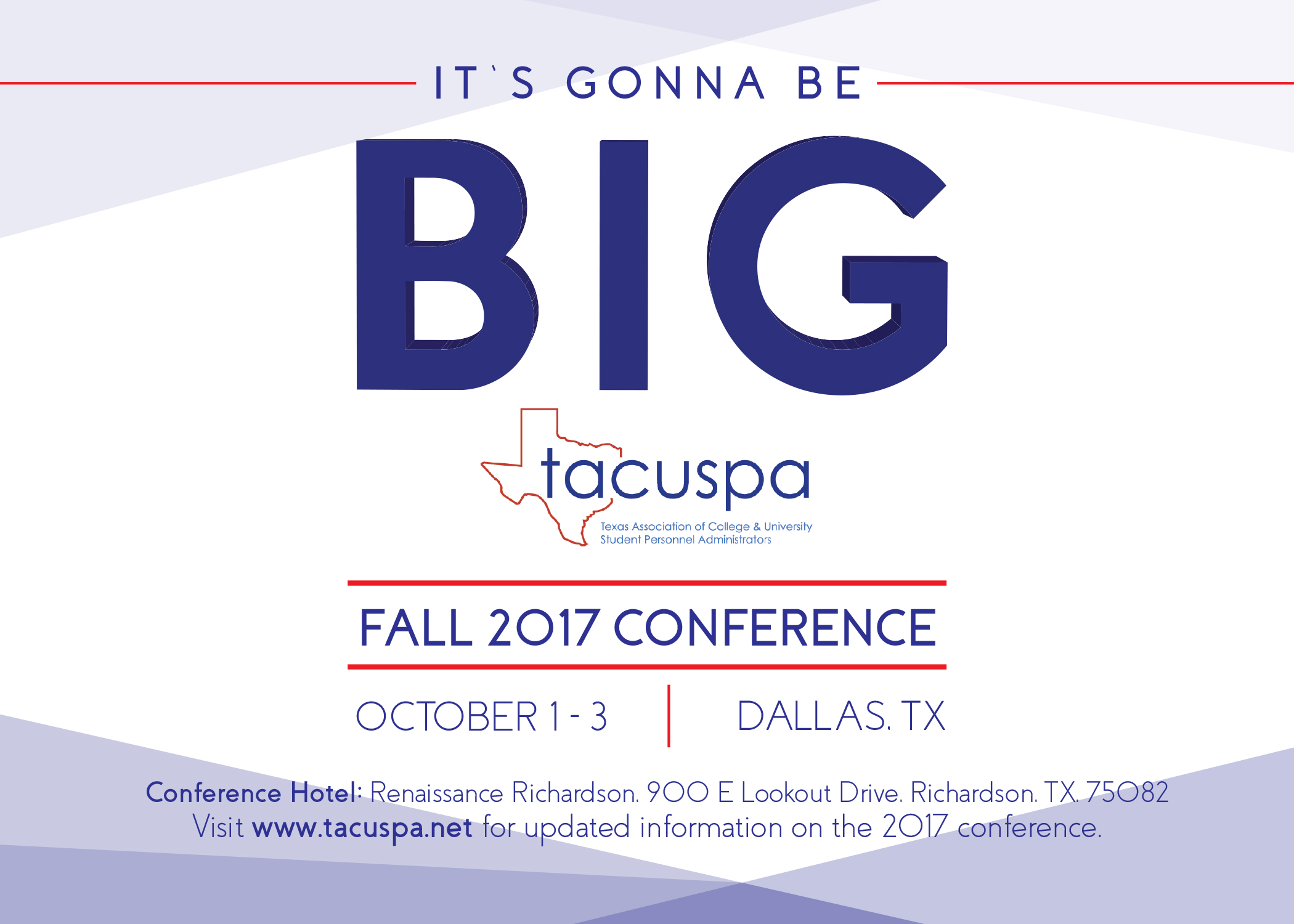


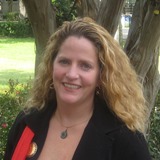 Pamelyn Klepal Shefman, PhD
Pamelyn Klepal Shefman, PhD



